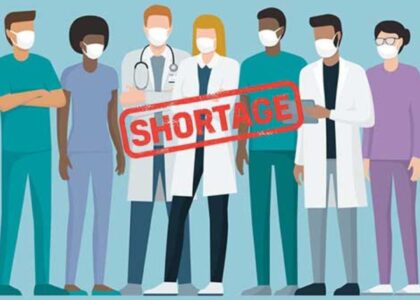HOSPITAL OPERATIONS:-
HEALTHCARE CHALLENGES FACED IN TIER 2 & TIER 3 CITIES

Shortage of Experienced and Trained Doctors
As the demand for care surges, the lament of inadequate expertise reverberates. Yet, in this challenge lies an opportunity for innovation, for the fusion of technology and compassion to bridge the gap. It’s a call to nurture, to empower the next generation of healers, ensuring that every patient receives the expertise and dedication they deserve, regardless of the scarcity that shadows the halls of medicine.

Lack of Patient Satisfaction
In the delicate dance of healing, empathy and understanding falter, leaving a void in the hearts of those seeking solace. Yet, within this void lies an opportunity for transformation, a call to arms for healthcare providers to listen, to empathize, and to evolve. For every disheartened sigh, there is a chance to rebuild trust, to craft a narrative of care that resonates deeply, restoring faith in the healing journey.

Poor Marketing Strategies
Poor marketing strategies can be likened to setting sail without a map or compass – directionless and uncertain. They entail a lack of cohesive planning, ineffective communication, and a failure to resonate with target audiences. Whether it’s neglecting market research, misinterpreting consumer needs, or inadequately leveraging available resources.

Inexperienced Healthcare Management Professionals
Inexperienced healthcare management professionals represent a critical gap in the healthcare ecosystem, where expertise and insight are essential for the well-being of both patients and organizations. Unlike seasoned leaders who bring years of industry knowledge and strategic acumen to their roles, inexperienced managers may find themselves navigating complex challenges without the necessary foundation or understanding.

Shortage of Skilled Nurses and Paramedics
The shortage of skilled nurses and paramedics represents a critical challenge in the healthcare landscape, impacting the quality of patient care and the overall functioning of healthcare systems.
One of the primary consequences of this shortage is the strain it puts on existing healthcare workers. With fewer skilled professionals available to handle patient needs, nurses and paramedics often find themselves stretched thin, working long hours and facing heavy workloads.

Lack of Advanced Infrastructure
The lack of advanced infrastructure presents a significant obstacle to progress and development across various sectors, from transportation and communication to healthcare and education. Advanced infrastructure encompasses a wide range of physical and digital assets, including roads, bridges, telecommunications networks, energy grids, and digital platforms, all of which are essential for supporting economic growth, enhancing quality of life, and fostering innovation.
OUR USPs
- Day to day assessment of Hospital functioning.
- Restructuring of management organogram for optimum utilization of manpower.
- Robust sales and marketing plansto generate revenue for hospital.
- Daily, weekly and monthly review of marketing plans.
- Regular assessment training of resident doctors, nurses and paramedics.
- Quest and appointment of skilled clinicians and nursing staff.
- Identification of strong areas & areas of improvement.
- In depth assessment of PNL to find out & identify loss making and profitable areas.
- Up gradation of emergency and critical care to attract more and more critical patient and to establish faith in local.
- Implementation of antibiotics Stewardship program to decease unwanted usage of crucial antibiotics.
- Assistance in the NABH Accreditation process.
